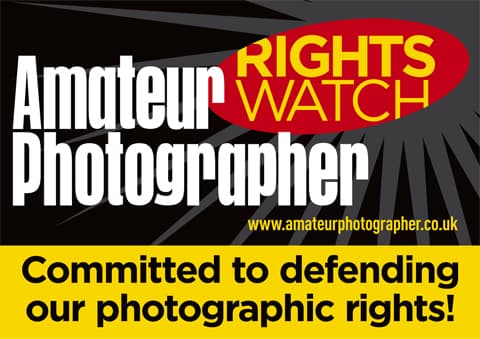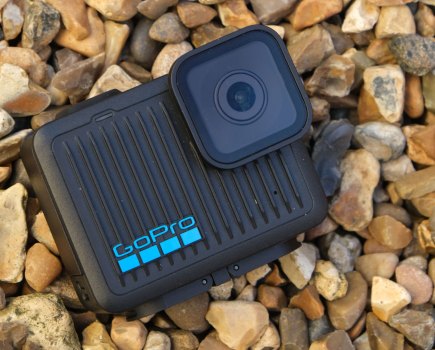The Government has stepped up talks with photographers, police and security bodies in a bid to ensure that the ?right balance? is struck on civil liberties.
Home Office officials stress that police must continue to hold powers to question people in public places under anti-terror laws, but that there is a need to liaise with private security industry organisations on the issue.
?There is a legitimate national security concern about hostile reconnaissance? as an integral part of attack planning,? said Rob Hunt from the Office for Security and Counter-Terrorism in a meeting with photography campaigners, police and counter-terrorism experts.
?The Government recognises that, in the past, we struck the wrong balance, and we are seeking to correct it,? added the Home Office official.
Hunt – who chaired the hour-long meeting at the Home Office in central London (pictured below) on 15 July – said that the perception of security guards is important in gaining the public’s confidence in the Government?s ongoing counter-terrorism strategy.
‘Tourist not terrorist’
At the meeting – attended by Amateur Photographer (AP) Editor Damien Demolder and news editor Chris Cheesman – police chiefs stressed a need to educate security guards across the UK as photographers continue to fall victim to what they see as ?overzealous? behaviour.
?If the picture is on Google then they [the photographer] is a tourist not a terrorist,? said Detective Sergeant David Parkes, a counter-terrorism advisor at the Metropolitan Police who delivers training to security industry officials, as part of Operation Fairway.
Asked about the reported heavy-handedness of some security personnel, Parkes said photographers have a right to take photographs and security guards must be made aware that they cannot delete captured images.
However, police admit they do not have the power to manage or control private security personnel.
?It?s a security guard problem, not a police problem,? said Parkes, conceding that privately-run areas, such as shopping centres, are a ?grey-area? regarding photographic rights.
The Home Office said it has already liaised with security industry representatives about drawing up guidelines for use by security staff.
Organisations involved include the Security Industry Authority which is responsible for authorising badges issued to newly trained guards.
At the meeting, the Home Office indicated that it could help facilitate a standard form of wording, regarding photographers? rights, to be issued to security guards nationwide as part of future training.
This would be drawn up by the Met and, perhaps, approved by the Association of Chief Police Officers.
Future advice is also likely to cover people sketching in public areas, as well as photography.
Artists now seen as terror threat
Artist David Paskett, from the Royal Watercolour Society, told the meeting of a friend who was recently stopped at a major London airport after he was seen openly sketching a scene.
DS Parkes emphasised that ?hostile reconnaisance? remains a prime security concern and said there is evidence that ?covert filming? was used by terrorists plotting the Mumbai attacks in India in 2008.
Though police are mindful of a Mumbai-style attack on British shores, Parkes said that the UK terror threat was downgraded a few weeks ago, partly because the general public has become better at reporting suspicious activity, thereby creating a ?more effective deterrent? than in the past.
The Home Office meeting also addressed the upcoming statutory guidance on police use of stop and search (Section 47A), following the recent counter-terrorism review.
The code of conduct, for police officers, forms part of the Protection of Freedoms Bill which has almost completed its passage through the House of Commons and is expected to become law in April or May 2012.
Not about camera size
The code is expected to stress that police must not target photographers purely based on the size of their camera, following a suggestion made by Royal Photographic Society president Rosemary Wilman who was also at the 15 July meeting.
However, Paul Donlevey, from the National Counter Terrorism Security Office, said that the anti-terror training strategy has always been about a suspect’s ?behaviour? and ?not the size of the camera?.
Donlevey revealed that Project Griffin (a controversial police initiative that calls on security guards to report people suspected of taking ‘hostile reconnaissance’ photographs) is about to be rolled out to all police forces across the county.
It was first introduced by City of London police in London in April 2004.
Summing up the meeting, chair Rob Hunt said that, though photographers concerns have been reduced, there is ?still some way to go, particularly regarding the education of security guards?.
Don’t tempt fate
He also stressed that photographers must take care not to raise the suspicions of security staff, and be aware of how to ?best assuage security guards? concerns?.
The Home Office added that, so far, there have been no cases where police have resorted to Section 47A, an emergency anti-terror measure designed as a more targeted replacement of the highly controversial ?no suspicion? Section 44 stop-and-search law that was abandoned last year.
However, following questioning by AP, Hunt conceded ?there is a risk that Section 43 will be used more?, in the absence of Section 44.
A Section 43 stop-and-search requires a police officer to reasonably suspect that a person is engaged in terrorist activity.
?We need to keep a close eye on this,? Hunt said.
Those taking part in the Home Office meeting included architectural photographer Grant Smith, from the I?m a Photographer Not a Terrorist campaign group, who has been stopped numerous times while taking photos in public.
Other organisations represented included the National Union of Journalists, SceneThat, the Bureau of Freelance Photographers and City of London Police.
? AP has been invited to take part in a police-led Project Griffin training programme. A full report will appear in due course
 Press ‘like’ to join our photographer’s rights Facebook campaign
Press ‘like’ to join our photographer’s rights Facebook campaign
 The Home Office
The Home Office








